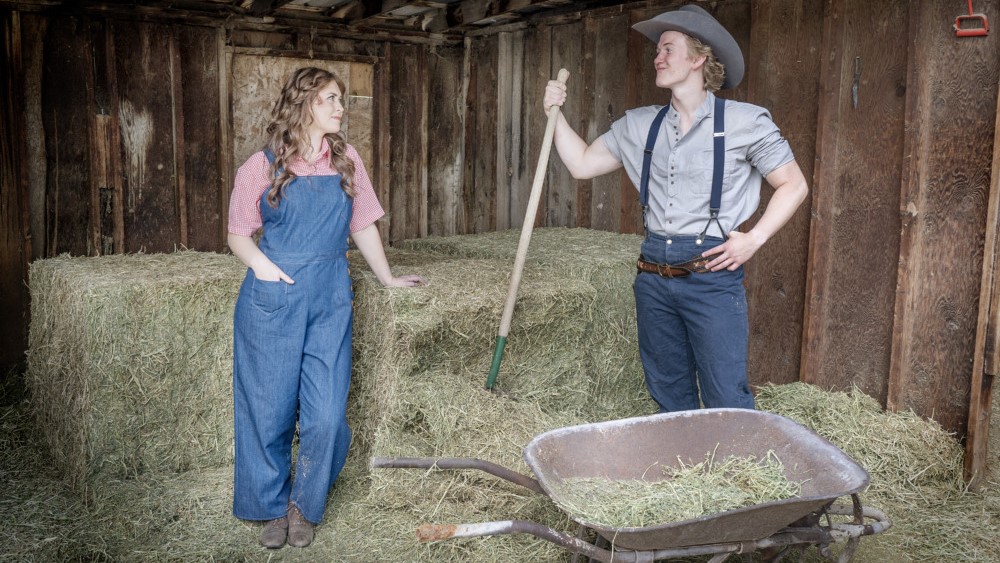OREM — It has been 80 years since the premiere of Oklahoma!, Rodgers and Hammerstein‘s homespun tale of frontier love. Back in 1943, Oklahoma! single-handedly revolutionized musical theatre, and it was has been a staple of the American musical theatre repertoire ever since. The SCERA has a new production of this old chestnut that does justice to the show and is worth attending — even for those who have seen it before.
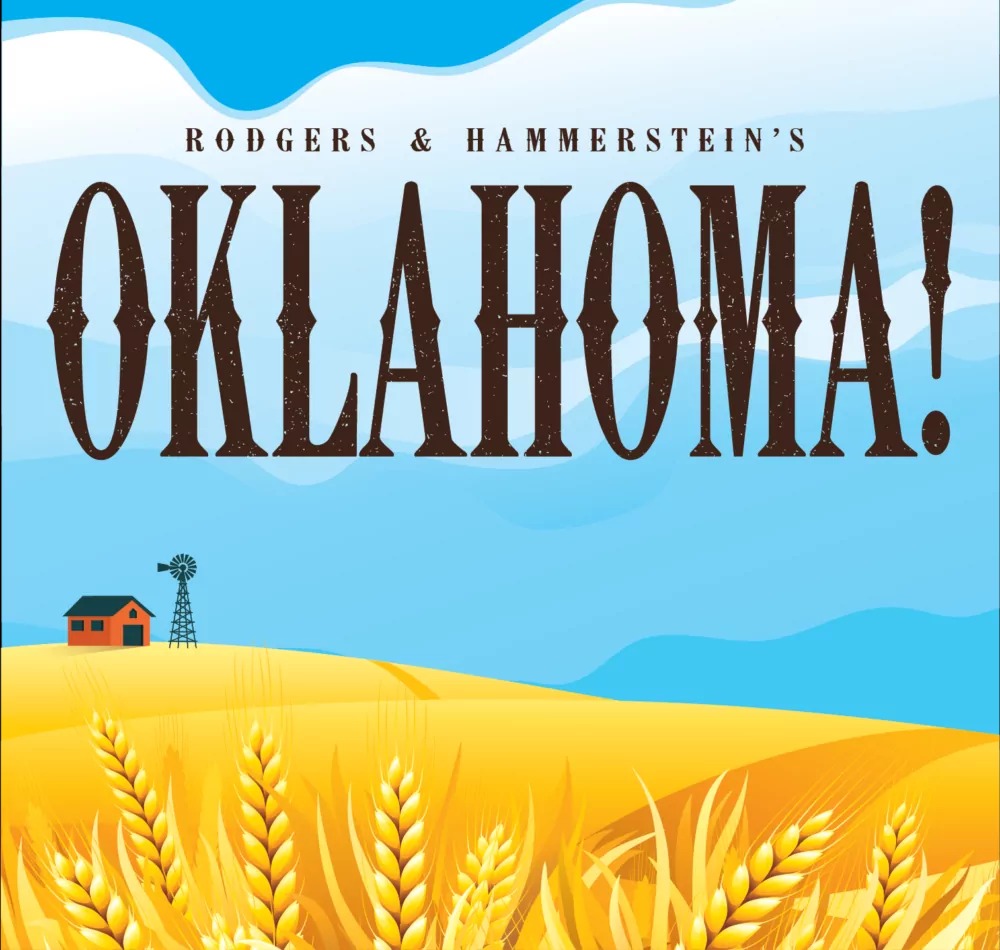
In Oklahoma!, young Laurey Williams must decide whether to attend the box social with her farmhand, the loathsome pervert Jud Fry, or local handsome cowboy Curly McLain. Laurey does not want to admit her feelings for Curly, though, and when she attends with Jud, tension develops between the men. Meanwhile, Ado Annie is also torn between two men: champion bronco buster Will Parker or the local Persian peddler, Ali Hakim. The plot seems paper-thin to modern audiences, but the strong score, lovable characters, and well crafted script have made Oklahoma! stand the test of time.
Within minutes of its start, I knew that the show was in good hands with director Chase Ramsey. The staging for Oklahoma! is dynamic; Curly doesn’t wander around singing about the “bright golden haze on the meadow,” he naturally explores his environment, drinking it in, while singing the classic opener, “Oh, What a Beautiful Morning!”. During the ensemble scenes, actors mill about the stage so naturally that it feels like they inhabit it because their stage business and interactions are so believable. Without changing a word of the script, Chase Ramsey adds bits of blocking that bring depth to characters. During “The Farmer and the Cowman,” Laurey and Jud briefly enter, with him hoping that Laurey will wear his cowboy hat (as other women are wearing their partner’s hats at that point in the dance); her refusal and attempt to leave him shows that her distaste for Jud and adds history to her later reactions to him. Another delightful bit of added staging was having Laurey reading and writing in her diary throughout the first act. It added consistency to the character and showed her as an introspective, pensive woman.
The only fault in Chase Ramsey’s directing is the pacing of the show. At just over two and a half hours (including a fifteen minute intermission), this is probably the fastest moving Oklahoma! on record. The dialogue is rapid-fire, and actors often start speaking before the scene change music has concluded. While my posterior did appreciate the shorter run time, the rushed dialogue made it harder for emotional moments to have an impact. The smokehouse scene between Curly and Jud was so fast that the gravity of the discussion (in which Curly suggests to Jud that he should hang himself) was lost, and the audience was laughing inappropriately. Similarly, because actors started speaking before the final scene’s scene change music ended, my son missed that that the townspeople were worried that Jud might return. When he did return five minutes later, it was a surprise for my son.
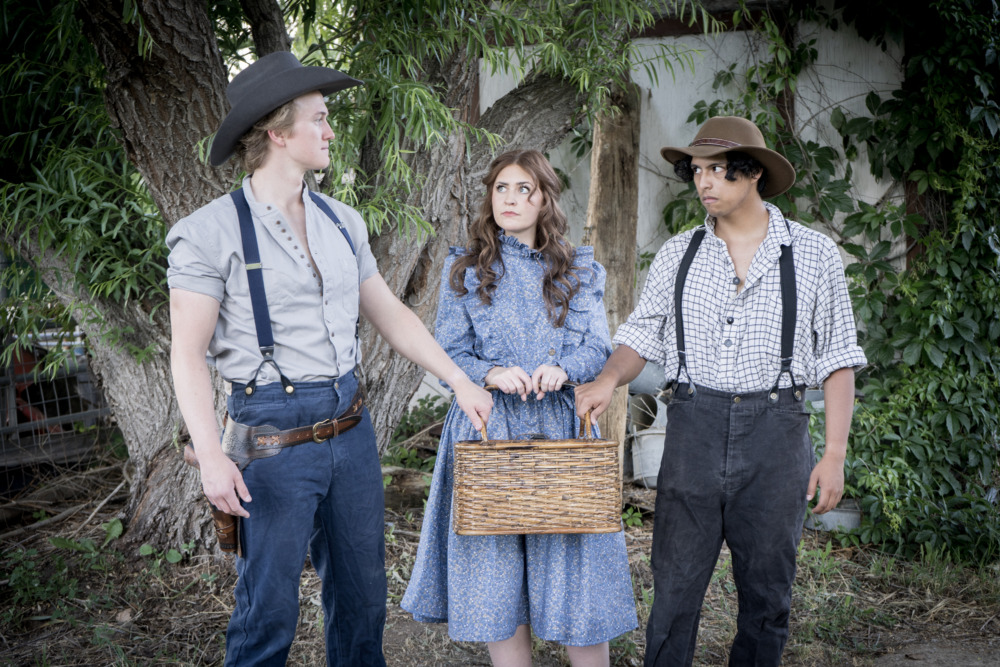
Janessa Ramsey was the choreographer for this production, and her work was, without exception, delightful. “Kansas City” was a superb mix of traditional musical theatre choreography with some square dance influences, and “It’s a Scandal! It’s an Outrage!” had some surprising modern dance movement that brought a smile to my face. The best treats were the ballet steps included in “Kansas City,” “Many a New Day,” “All Er Nothin’,” and (of course) the famous dream ballet. This choice infused the entire show with grace and made the songs visually unified. Finally, the title song was a perfect blend of melody and movement that was a satisfying ending to a lovely evening. Agnes de Mille would have approved.
As Curly McLain, Jeff Sundwall is endearing. Whether it is showing Curly as a twitterpated young man in the first scene, or a grief-stricken man reacting to a tragedy on his wedding day, Jeff Sundwall grounds his character in authentic emotion. I most appreciated Jeff Sundwall’s gentle tenor voice with its disciplined vibrato. His singing adds a lush quality to “People Will Say We’re in Love” and “Oh, What a Beautiful Morning!” that elevates the tuneful score. Opposite him is Jeff Sundwall’s real-life spouse, Hailey Bennett Sundwall playing Laurey. Hailey Bennett Sundwall plays Laurey as more than just an ingénue; she seizes on “Many a New Day” to sing the lyrics with determination and gumption, which not only enlivens the song, but makes Laurey a more intentional, active character. This pays off later in the second act when Laurey fires Jud; it seemed like a natural outgrowth of Laurey’s psychology. Unsurprisingly, the Sundwalls have great chemistry, and their characters’ flirty repartee was charming.
The rushed direction shortchanged Daniel Cespedes, who played Jud Fry. But I saw glimmers of excellence in his performance nonetheless. Cespdedes’s mournful rendition of “Lonely Room” was an emotional highlight and provided insight into his characters’ yearning for meaningful companionship. When given time, Cespedes can craft of nuanced character and a thoughtful performance.
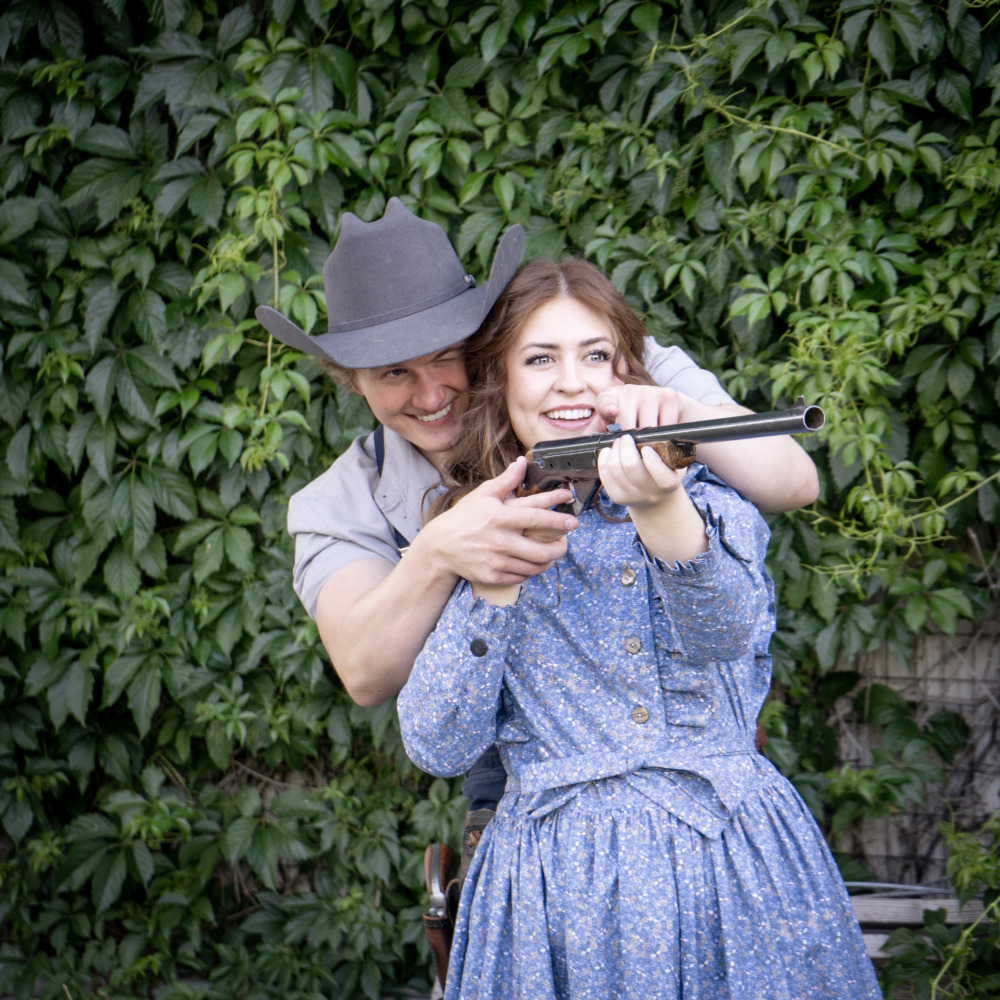
McCall Brainard embraced the comic role of Ado Annie with unbounded enthusiasm. Brainard is impeccable in delivering a punchline, and her excitement during “I Cain’t Say No” was adorable. Brainard is a fun comic partner with her male costars, Ty McQuiston as Will Parker and Clayton Troy Guymon as Ali Hakim. For his part, McQuiston is lovable as the dim-witted cowboy, and he has ample stage presence to handle “Kansas City” on the massive SCERA Shell stage. Guymon often steals his scenes as the lovable Persian peddler, and his grasp of the irony in his dialogue and “It’s a Scandal! It’s an Outrage!” is so strong that I often chuckled at his line deliveries. As Andrew Carnes (Ado Annie’s father), Andy Kelson is a suitable older presence, though he often shifted down an octave during “The Farmer and the Cowman,” which disrupted the song’s well-crafted melodic structure.
In addition to directing, Chase Ramsey also designed the gorgeous set. At stage right, Laurey and Aunt Eller’s home rises to a full two stories, and Laurey or other characters sometimes perch themselves on the veranda roof to watch the action elsewhere on the stage unfold. The house’s porch is welcoming, and the home looks prosperous, a nod that Oklahoma at the time was emerging from its hardscrabble beginnings to a thriving land. (The house even has interior lighting for each window!) Upstage is a series of platforms of increasing height that are decorated with waist-high wheat; combined, they give the illusion of depth, as if the action is taking place at the base of a hill (not unlike the one the audience sits on to watch the play). Chase Ramsey’s set is also beautifully painted, with rich texturing that pleases the eye and breathes realism into the setting.
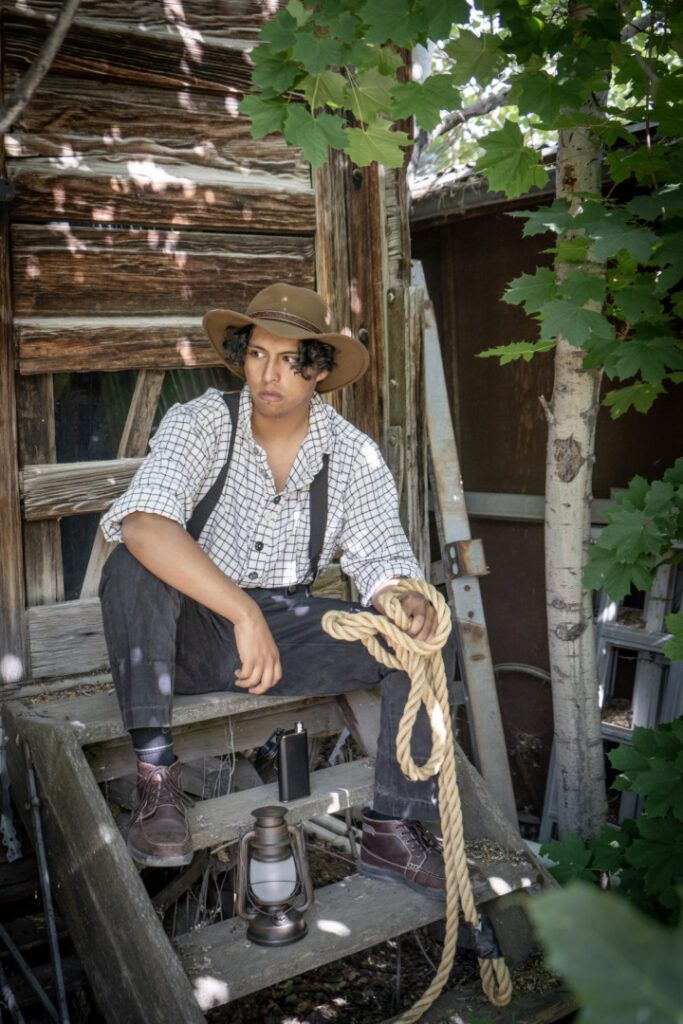
Deborah Bowman could have taken the easy way out and costumed Oklahoma! with generic pioneer dresses and button-up shirts and pants. Instead, she created a wide array of period clothing that would have been fashionable and functional in 1907 Oklahoma. I especially appreciated the floral prints and small checks on the dresses, with the exception of Gertie Cummings (played by Emma Johnson). She wore a right red-and-white dress with a large check pattern, which made sense because Ali Hakim (whom the character marries at the end of the play) wore a three-piece wide windowpane suit, and the geometric similarities on their costumes made it natural for these two outsider characters to end up together. Finally, the hats and bonnets that the cast wore during some of the scenes were a lovely detail that was not overused.
SCERA’s production of Oklahoma! punches above its weight. On the Shell stage, the gap between the debut of Oklahoma! and today does not seem so vast. While its corny aspects and dated attitudes are still there, the play is lively and enjoyable. For first-timers, the SCERA’s Oklahoma! is a fine introduction to a classic musical, while veterans will appreciate the innovative — yet respectful — treatment of the material. There is so much to love and appreciate in the SCERA’s Oklahoma!, and I hope audiences embrace this lovely production.
[box]Oklahoma! plays nightly (except Sundays and Wednesdays) at 8 PM through July 22 at the SCERA Shell Outdoor Theatre (600 South 400 East, Orem). Tickets are $12-20. For more information, visit scera.org.[/box]

